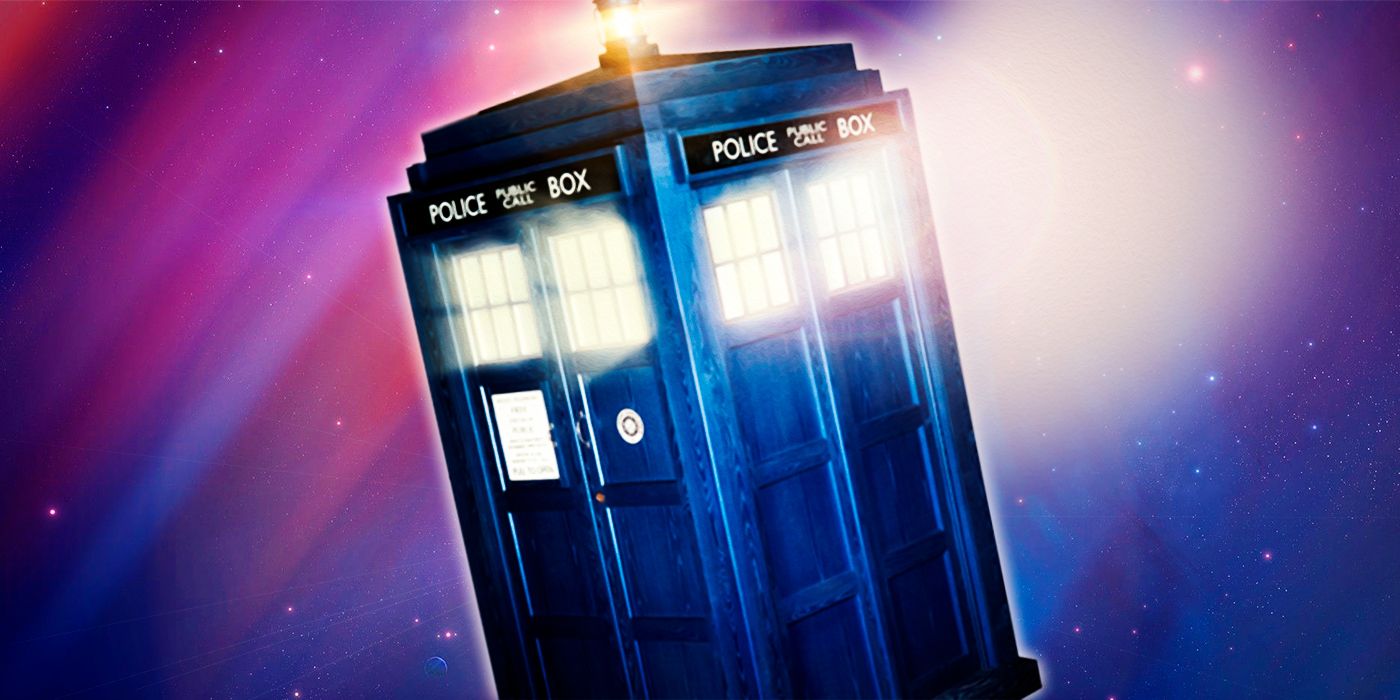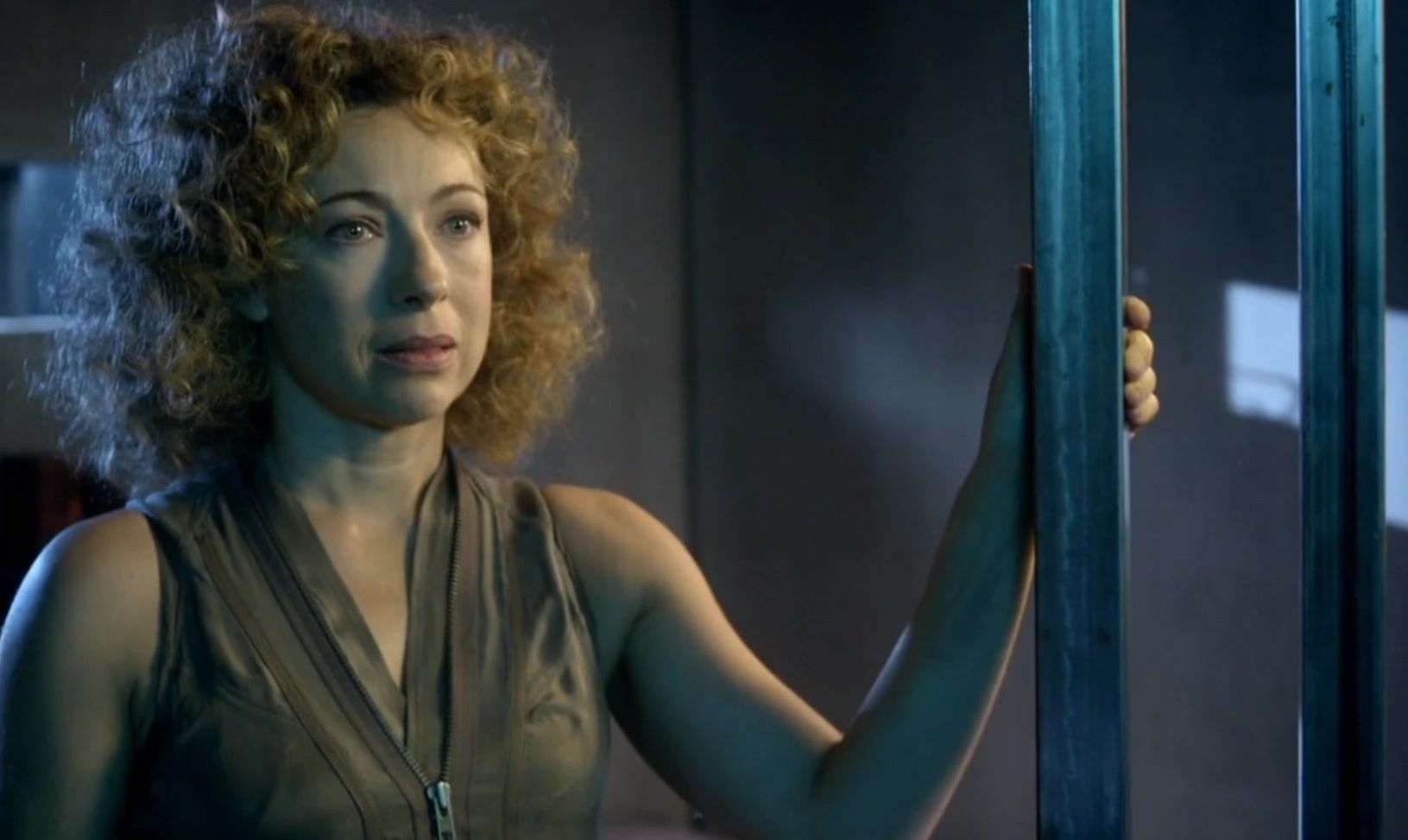Any Doctor Who fan will instantly recognize the distinctive wheezing sound the TARDIS makes whenever it materializes or dematerializes. Variously dubbed the "vworp-vworp," "vwoorp" or "vwoorpy" by fans of the franchise as well as several characters in-universe, the noise is as iconic as the time machine's blue police box exterior.
For most of the show's long run, fans and creators alike assumed the noise was simply part of the TARDIS, as intrinsic as its bigger-than-the-outside interior and temperamental, semi-sentient nature. It wasn't until New Who and the Eleventh Doctor's run that showrunner Steven Moffat invented an explanation for the sound effect -- though some feel it is a rather dicey one. As with many factoids in the long-running, ever-changing universe of Doctor Who, there are plenty of canon occurrences that directly contradict this explanation, as well. So what is the truth behind the vwoorpy?
The vworp-vworp sound effect has been a staple of the Doctor Who franchise since its beginnings. It was created by a BBC Radiophonic Workshop sound designer named Brian Hodgson, who was also the mind behind dozens of other iconic sounds from the show, including the voices of the Daleks. Later in life, Hodgson wryly noted in an interview that he couldn't exactly look up the sound of a time machine in the effects library, so he struggled for some time to come up with ideas for the sound cue. Free experimentation led him to try running his mother's front door key along the bass string from a disassembled piano. With the addition of a few oscillator blips, some white noise and plenty of feedback, the first incarnation of the famed TARDIS dematerialization sound was born.
For the rest of the series' tenure, the sound became as intrinsically tied to the Doctor's identity as the blue box itself. Over the course of the franchise's long history, the sound changed countless times, and the exact noise as viewers know it today was not truly cemented until the show's tenth anniversary. The full history of the vwoorpy's evolution is complicated, fascinating, and thoroughly documented, as is only to be expected of Doctor Who's dedicated fanbase.
When Steven Moffat and the Eleventh Doctor took over the show, the character of River Song was introduced. During the events of the episode "Let's Kill Hitler," a young River was taught to pilot the TARDIS by the TARDIS's consciousness itself. Later in her timeline, when she takes over piloting the TARDIS in the episode "The Time of Angels," the Doctor comments with surprise that the time machine isn't making the customary sound. River then smugly notes that it's not supposed to make that noise -- it's actually caused by the Doctor leaving the brakes on.
This relatively throwaway line was received with some shock by the fanbase, as no one had ever imagined the sound could actually be a glitch caused by user error. The confusion was compounded by the fact that other Time Lords' TARDISes, such as The Master's and The Rani's, had been shown making the same noise in other episodes. Fans debated whether the explanation made any sense at all or if it was careless retconning inserted simply to make River look clever, something Moffat was often criticized for. River's characterization as a teasing trickster didn't help, either, as it could be quite difficult to tell when her jibes at the Doctor should be taken at face value.
It's interesting to also note that various Doctors have been shown deliberately turning the noise off and engaging a "silent mode" for the TARDIS, generally in order to be unobtrusive or stealthy. Could it be that Time Lords simply like the noise? Eleven certainly protests that he loves it, calling it "brilliant," in defense to River's comment about the brakes. Some fans have even speculated that TARDISes, having a mind of their own, might be prone to shooting off wherever they wish against the pilot's wishes, thus necessitating that the brakes be kept on as a sort of leash.
Doctor Who's nature as a show that has had countless different visions at its helm makes it difficult to be fully definitive about canonical facts. As each showrunner has taken the reins, they've brought their own spin and interpretation to even the most classic elements of the franchise. Whether the TARDIS is supposed to make the vworp-vworp noise or not, it's so deeply tied to the show's identity that it's unlikely the Doctor's time machine will ever stop emitting the sound. One thing is for sure -- Whovians would certainly miss the vwoorpy sound cue if it disappeared.



